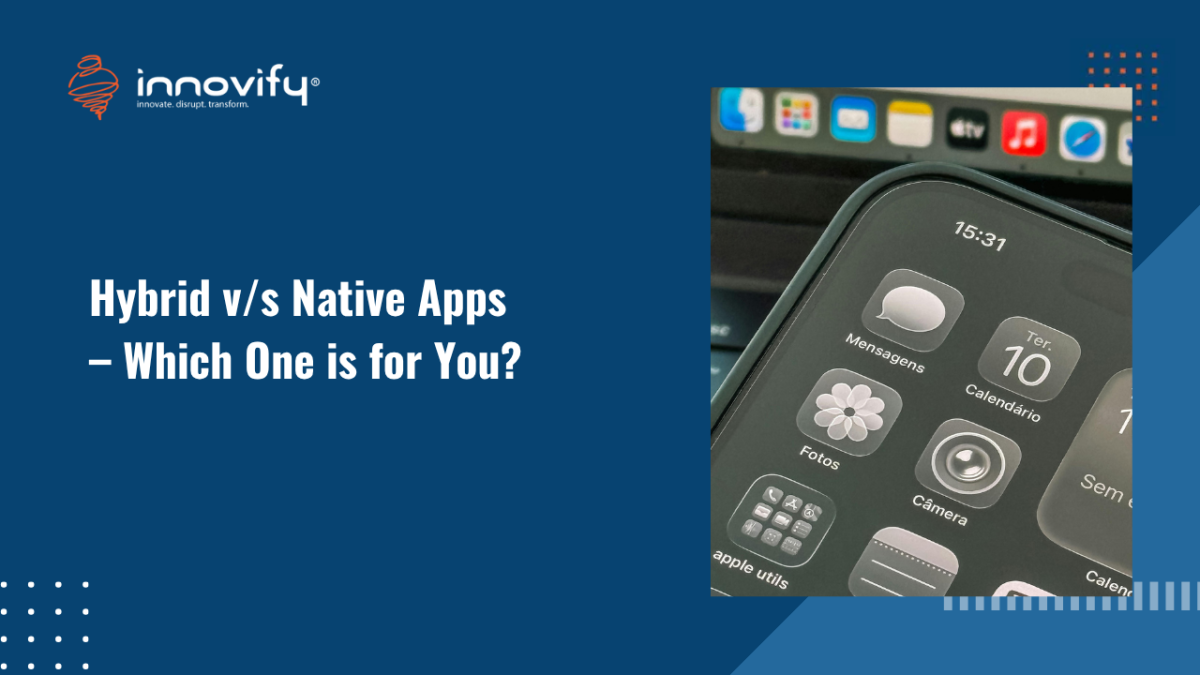AI/ML
HYBRID VS NATIVE APPS – WHICH ONE IS FOR YOU?
So, you know you want an app.
You’ve done your research, you have customers pointing towards a need for a mobile experience using a native app or a hybrid app to make ordering easier, for your blogs to gain a wider audience, or maybe just because your competitors have one and you want to waggle your technology stick back at them.

First, what’s the difference?
Native
A native app is one that’s coded entirely for the benefit of (for example) an iOS or Android device (hence the name native, it’s native to that kind of device). You, therefore, have to code something in the requisite language for either of those for it to work.
Hybrid
It’s an app that has an outside wrapper that looks like an app, allows it to be downloaded from the App Store or Play (other portals are available).
Behind the wrapper, it’s coded in the same way a website is, but it’s just optimised for mobile devices. So, it would be coded for instance using HTML 5 or higher (with maybe a bit of Java and more thrown in).
So, the pro’s and con’s of each:-
Native Pro
- The great thing about native is that it seamlessly integrates with the features of your target handset. Maps, camera, NFC (being able to interact with other devices and objects by being near them) and local storage can all be leveraged easily using a native app
- Performance difference – only marginal, but depending on the size and complexity of what you’re doing, could make a difference
- They can be used offline
- Less ‘glitches’ due to the variety of handsets and operating systems, you design it for that handset & OS, the stability is often better
Native Con
- More expensive – depends on your budget, but can be 3 x more expensive than developing a hybrid app
- Developing an app for different operating systems can be a bind unless you’re able to outsource to a team that has capability for both, otherwise, you’d have to hire that talent (or have it on-hand)…same goes for maintenance
- You’re bound by the T’s and C’s of the marketplaces you offer them in
Hybrid Pro
- It’s generally coded in HTML 5 or above, and thus common to most developers. Your mobile optimised site just gets ported onto the various app marketplaces with a native wrapper on it so it looks the part
- You can update on the fly because it’s a web-based product, no waiting to push out updates, or having to strategically launch them (though this can be a drawback too, depending on product)
- It’s cheaper to develop and maintain
- No waiting for someone from a marketplace to approve your latest update before it goes live
Hybrid Con
- You can’t access those lovely features that a phone offers (or the experience is limited/glitchtastic….anyone tried using a ‘choose your file from dropbox or your phone’ through an app?). That’s not to say it will always be thus
- Can’t be used offline
- No support from those pesky marketplaces (see, they’re not all bad)
- Performance/stability – those these issues are minimal these days, and hybrid may well be the future, a native app, as the name suggests will have more stability because of the phased updates, consistent coding, extra eyes on said updates
At the end of the day, it comes down to what you want the app to do, what its’ intended audience expects from that app, your budget and time.
Before you go ahead and just plough into developing either of the above types of app, speak to people that build them and get a recommendation (no company you ask should steer you wrong if they want long-term business from you).
Find out what your users want from an app, this is key to the functionality you’ll need to deliver. After all, if you’re Niantic and you’ve just released Pokémon Go to huge download success, you don’t give a hoot if people are a bit upset with the odd change because people will still download in droves.
Most of us aren’t in that privileged position, and can’t afford to get on the wrong side of users from the get-go, so it’s important to get it right.
If you start with a host of great reviews, read them, take on the feedback, do more of what they like (within your own limitations).
If you start off with bad reviews, take on board the feedback and act on it (not forgetting to give timescales…getting it right, over sorting it right now). People will generally give you a chance to get it right if you have that brand loyalty. Just don’t keep messing it up.
Again, it comes back to either hiring people who have experience of delivering successful apps or engaging a company that can help you with the entire process.
Check their case studies, maybe download an app or two that you can see they’ve developed, see if you like what they do!
I’ve tried to keep this one simple, and aimed at companies that are weighing up whether to develop their first app obviously….and I’ll remind you that the best thing you can do at the start is check if there’s an appetite for one, and if it will deliver a return on investment.




